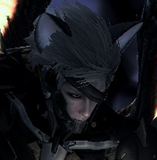I own the Prima Guide for Myst V. In the back is an interview with Rand. The interviewer asks him what he thinks of the folks modding Uru-- and he launches into glowing praise for their work, noting that he's impressed with what they're making, and as long as they understand that Cyan makes the canon and anything the modding community does is subject to Cyan's wishes, he supports it. I would dig up the quotes if I thought they'd influence your opinion, Zander, but I don't think it matters. Call me a liar if you want, or you can go read the Prima Guide.
That was in 2005.
Aside from all the points people above me have made about the fact that we aren't technically stealing (although it is an admitted gray area), Cyan and Rand himself have expressed support for the modding community long before MO:UL ever happened.
Posts like Zander's happen when people get too attached to the company they support. Cyan is a game company, not mommy and daddy. If Cyan suddenly felt threatened by the GoW and came down hard, granted, it would suck-- and be stupid-- but I wouldn't hold any hard feelings. Because it's a COMPANY. Some people need to get this through their heads.
Zander, before you make accusations of stealing, you need to know more about the laws you claim we're violating. This is not as simple as you want it to be.
EDIT: by the way, asking the admin to delete your account because you don't want to say something obnoxious-- and then blaming them when you do say something obnoxious-- is juvenile. You're responsible for your words, not Hoikas, not the GoW, and not anybody here. If you're afraid you're going to say something you don't want to say, then don't say it. Don't expect other people to babysit you.
EDIT 2:
Kaelis wrote:as a side note - Copyright Violation is not Theft. The laws are totally different. =)
EDIT: note, however, that copyright violation is not occurring in this instance. >.>
I saw this after I posted and I need to make a point.
Copyrights are considered tangible property, just like any other object, be it a chair, or a house, or a blender. Copyrights essentially give the owner permission to reproduce, modify, or perform their copyrighted material. Copyrights can be sold, exchanged, given, bought, split, and basically treated the same as you would any other form of property. In the case of music, modifying an original song and changing key features (such as chord changes or the melody, or sampling it and putting it in another song) is considered a derivative work. You may not create a derivative work unless you own the copyright, or if the copyright holder grants you permission.
Since copyrights are legally considered intellectual property, they can therefore be stolen. They are considered "stolen" when someone who does not own the copyright to an intellectual property utilizes that property in a way that violates the rights of the owner of the copyright.
So while you may not be stealing the property itself, you're stealing the rights-- which are considered property. This is why it's illegal to make copies of a CD or movie. You own the CD, but you don't own the rights to the content on the CD. So if you violate the copyrights, you're not stealing the contents of the CD necessarily; you're stealing the rights.
Copyright law has lots of cracks when it enters the digital world, however the principles stay the same. I could launch into a whole explanation of the gray areas that come with buying an mp3 from iTunes, but that's beside the point. I don't know copyright law for game media as well as I do for music, but the laws generally behave the same way. So if it could be proven in a court of law that "modding" a copyright game is considered creating a derivative work, it would technically be considered a violation of copyrights. The EULA has nothing to do with it.
I don't know if that's ever been done in respect to copyrights for a game, but it wouldn't be too hard.
On the other side of the same coin, if it could be also proven that the owner of the copyright has given expressed (or even indirect) permission for an individual or group to create a derivative work of the copyrighted material, they cannot sue the party that created the derivative. Permission to create a derivative work can be granted by the copyright owner. While Cyan seems to be in a stage of considerably less support for the GoW, we could also easily point to numerous quotes and policies that would suggest Cyan has granted permission on numerous occasions.
Of course, none of that means anything unless there's a contract for a derivative work in place, but I'm just throwing out a hypothetical court situation. It really could go either way. None of this is clear-cut. So let's be careful what we say about copyright laws.


